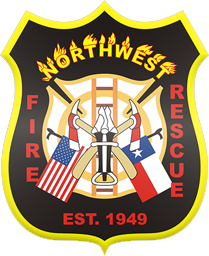Northwest VFD Transforms Firefighter Mental Health with an Early Intervention System
About the Customer
Northwest Volunteer Fire Department (VFD) in Texas is a combination fire department with both volunteer and full-time personnel. It comprises four stations and more than 100 employees and volunteers.
Background
Before implementing an early intervention system, personnel management was handled via a manual, paper-based process and documents had to be physically signed to be legally defensible. With supervisors and firefighters regularly operating on different schedules, the flow of information was often delayed.
When an event occurred that needed to be tracked (typically negative behaviors), a supervisor would send a write up to the administrator to be entered in the individual’s file. Firefighters did not consistently receive a copy of the documentation nor was their chain of command made aware of the issue.
Opportunity
Northwest VFD Chief Wesley Cole knew they needed stronger communication throughout the chain of command, and with a large and distributed force, a unified technology system that could be customized to their needs was the clear solution.
Additionally, Northwest VFD was starting to understand that there was more to mental health than what they’d realized.
As a result, Chief Cole wanted a system that could help leadership better support their firefighters’ mental health by increasing positive feedback and allowing visibility into critical incidents, defined as calls that involved a death.
Goals
Northwest VFD’s goals for its early intervention system were focused on increasing communication, transparency, and retention:
- Track activities in one system that allows transparency at all levels—from firefighter to supervisor to senior leadership.
- Use documentation in the system to give immediate, transparent feedback to personnel.
- Emphasize merits and positive recognition just as much as negative feedback.
Solution Deployed
Northwest VFD started using the early intervention system in March of 2020 with 99 users and has dramatically improved the flow of communication, especially when it comes to the volunteer firefighters.
The system allows documentation of daily observation reports, both positive and negative feedback, and customized events for every individual. Northwest VFD leadership can set thresholds on events to highlight patterns or notify supervisors to take action.
When information is added to the system, it can be easily accessed by leaders, supervisors, and firefighters themselves. With the early intervention system in place, everyone in the chain of command can now understand what the next steps are—even without meeting face-to-face.
If a leader or supervisor is out or unavailable, all personnel need to do is log the appropriate information, and the relevant individuals are able to see and attend to the information when their schedule allows—helping them keep in touch with their direct reports and better understand the various situations they are dealing with day-to-day.
It is no longer necessary to wake up supervisors for signatures. They can read all the daily evaluations when their shifts begin. Supervisors know that when they return from leave, everything was handled and documented while they were away.
The Result
“One of the most positive outcomes is making sure that we are really focusing on the firefighters’ mental health,” said Cole.
To date, the Northwest VFD has documented over 900 critical incidents.
In response, the department implemented an early intervention for critical incidents. If a firefighter has more than three critical incidents in a 30-day period, the supervisor is notified and schedules a check-in conversation with the firefighter.
And for the past six months, if leadership sees a lot of entries and interventions, they have been recommending paid time off for the firefighters.
Since this policy has been in place, five or six firefighters have been sent home. But Chief Cole expects this number to increase as the benefits continue to grow more apparent.
“Just last week, I had one crew that responded to five deaths in 48 hours… Now we’re able to see that and give them a day or two off to be with their families and get away from the stress.”
—Wesley Cole, Chief, Northwest VFD
“One of my firefighters said, ‘It really has made a difference in my home life. Now I understand that I’m responding to a lot of critical incidents, and I might be taking my frustrations home,’ said Cole. “Now he can say, ‘You know what? Maybe I need to go see a counselor.’”
To further support such efforts, Northwest VFD has implemented a mental health program with a local counseling service that specializes in first responders.
“The early intervention system makes a tremendous difference, and I’m getting a lot of feedback that they absolutely love that they are getting recognized,” said Cole.
“We always had an issue with documentation, and we started noticing that we were responding to a lot of incidents where there were deaths involved.”
—Wesley Cole, Chief, Northwest VFD
